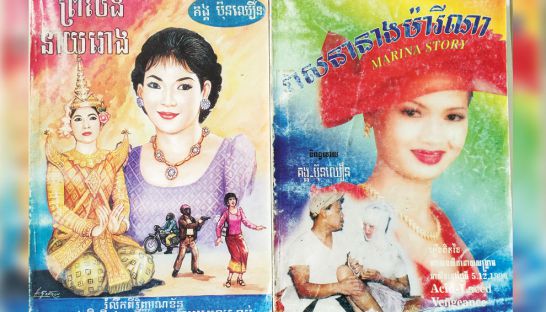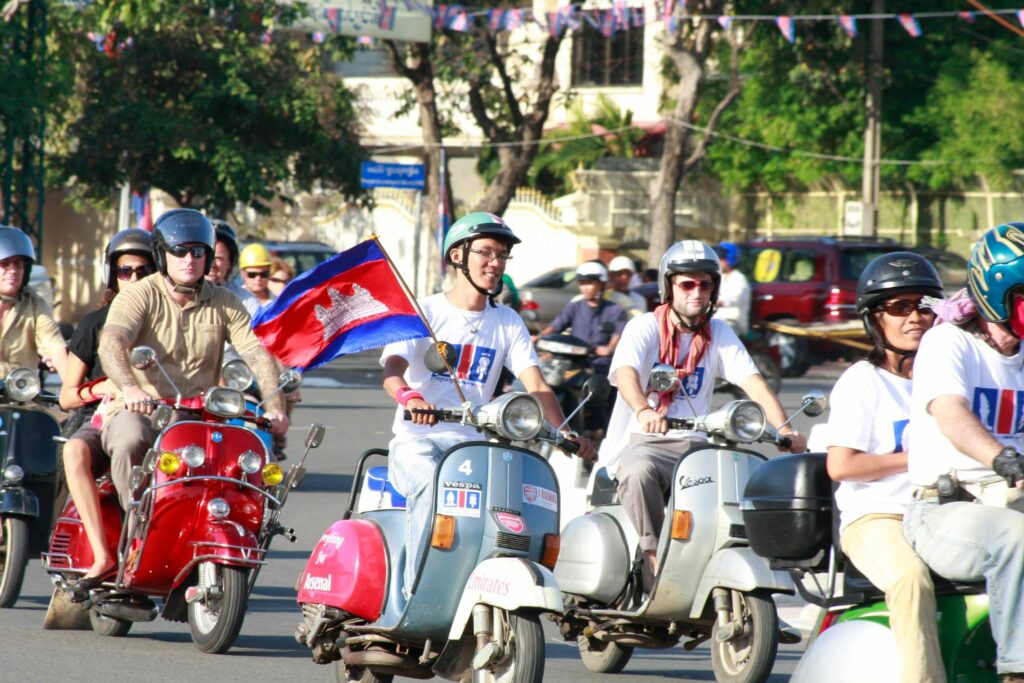Unofficial Translation from The Phnom Penh Post’s Khmer edition
TUESDAY, 14 JUNE 2016,
TONG SOPRACH
គួរបញ្ឈប់ការកេងប្រវ័ញ្ចផ្លូវភេទ និងនយោបាយពីស្ដ្រីទៅ!

It has been 20 years since the gender mainstreaming was introduced to Cambodia to strengthen the equality between men and women, as well as to eliminate the discrimination against and exploitation of women. As a result, we have seen important policy documents developed such as the Neary Ratanak Cheat (National Golden Ladies) strategy and the Second National Action Plan to Prevent Violence against Women and Children (2014-2018).
Yet, why do some politicians still physically, mentally, and/or sexually abuse women, or even use them as their political “game”? These actions sarcastically oppose the above mentioned national strategies.
Hitherto, many senior officials and politicians have been putting pressures on women to satisfy their relentless lust. They are craving for exploiting sexual entertainment workers, or sexually abuse women.
Even though these officials are married, no young woman or female celebrity could escape being their toy, as long as they want her to be. The name Srey Tata (Old Man’s Girls) clearly implies this; that these women are prizes to be fought for between these lustful men, mostly involving gun fights (PSI, 2002).
The politicians take advantage from the meeting abroad they bring their Srey Tata abroad just to have sex with them is not new for these officials, as it has been a popular way to conceal the affairs from their wives. If those women are lucky enough, they will be awarded with villas, luxury cars, and opened businesses.
On the other hand, if evil falls on them, these women could be the victim of murder or acid attacks. The examples include Piseth Pilika (Alleged as Prime Minister Hun Sen’s mistress), Tat Marina, Pov Panhapech and Touch Sreynich, all female celebrities who were murdered, or crippled for life.
The stories of those women were illustrated by Kong Bunchheun, a late famous poetry and song author (Tat Marina’s uncle). Work by Bunchheun include Veasna Neang Marina (The Life of Marina) and Preleung Neay Roung (Chief Miller’s Spirit), in which he depicted the secret relationship of two celebrities, relatively Tat Marina and Piseth Pilika, who has affairs with senior government officials.
The two books forced Mr Bunchheun to flee to Finland and Norway countries, where he remained until his last breath, to escape any harassment from the authorities.
To make the matter worse, Tat Marina, who was his nephew and his own blood, was scared for life after the attach, left crippled, while the attacker is still walking freely on the street. Despite frequent prompts from RFA (Radio Free Asia), the media outlet which publicly named the suspect and accomplishes, not a single legal action has been taken.
Apart from that, some politicians have been using these poor women as their political tools. Sam Rainsy Party (a main opposition party before coalition with Human Rights party to become Cambodian National Rescue Party “CNRP”) for example, has often used the story of Piseth Pilika’s death as part of their propaganda.
However, such as act proved no gain. As the result, CPP (Cambodian’s People Party) won seats in the National Assembly increasing to 90 in the fourth term. But the voters didn’t care about this issue, Cambodian people were paying more attention to their daily needs than scandals. Ironically, CPP was using the same trick in the fifth term against Kem Sokha, (Vice President of CNRP) but they lost 22 seats.
While the 6th term is yet to come, politicians are using their affairs the tool for power again, forgetting the past consequences and ignoring the lack of logic and legitimacy.
The recording of the leaked conversation between Kem Sokha and his alleged affair Khom Chandaraty (aka Srey Mom) on the phone, for example, violates Article 318 of the Penal Codes. Meanwhile, the revelation of Srey Mom’s Testimony by the prosecutor violated the code of conduct, also involving bias and the externalities of the competition between the two leading parties.
Two young women who have been used are Srey Mom and Miss Thy Sovantha (Former CNRP activist). The authorities have arrested anyone to whom Srey Mom points her finger. One of them was Seang Cheat, a commune chief from CNRP.
ACU (Anti-Corruption Unit) claimed it was working day and night on the witness bribing case, in which four ADHOC officials and a Deputy Secretary General of NEC (National Election Committee) were accused. Human rights workers who still remain in custody.
The ACU and the court’s respond to the case seem biased and politically motivated. They showed great effort even when the self-proclaimed unmame-university students summit their complaint.
On the other hand, the Post has reported about the corruption, nepotism, and power abuse in the National Center for Malaria, Parasitology and Entomology (CMN). The examples include the loss in budget due to fraud and the sales of its head office in Phnom Penh, despite it gave the testimony from the health officials who spoke under anonymity. The ACU did nothing to respond to CMN corruption, not even when those witnesses have submitted complaints to ACU since April. The problems still go on, like nothing has happened.
Why has the National Assembly not questioned ACU regarding such discriminative law enforcement?
Obviously, Srey Mom is just bait for bigger fish, the arrest of Kem Sokha. The opposition party activists, however, would fight to protect its leader. Now, the situation seem to be a little calmed, and it does look like both parties want to go back to the use of dialogue.
Last week, EU and some signatory countries of 1991 Paris Peace Accords called for the government cease the use of the court to punish opposition party members, NGO officers, and NEC (National Election Committee) officials. The UN Secretary-General has also showed great concern towards the current human rights abuses in Cambodia.
What kind of democratic country is Cambodia when its male politicians are using women as political tools? They tend to take advantages of women, unlike its neighbor [Vietnam] who once assigned women to be the spy to win the war against the powerful countries such as France and United States.
There are two reasons why politicians use women as the tools. Firstly, young women are used the term of exchange for promotion of the senior officials who works closed to his party leader(s). Some force their daughter to sleep with their boss [party leaders], just to go to higher places. Secondly, women are the ones closest to their opponent, and thus the best weapon to defeat them. It sounds like an out-of-date game plan, but it does affect their opponent’s reputation and popularity.
However, such acts need to be stopped as it is against the intention to promote the role and rights of women in society. There is nothing to be gained from such discriminatory behavior, and politicians should rather think about their people, who are suffering from natural disasters and drought, while many migrate to the other countries for career opportunity.
We cannot dismiss the truth; the use of women as political tools brings no good and will only cause the loss of seats in parliament.
Tong Soprach is a social-affairs columnist for the Post’s Khmer edition.
Comments: [email protected]
